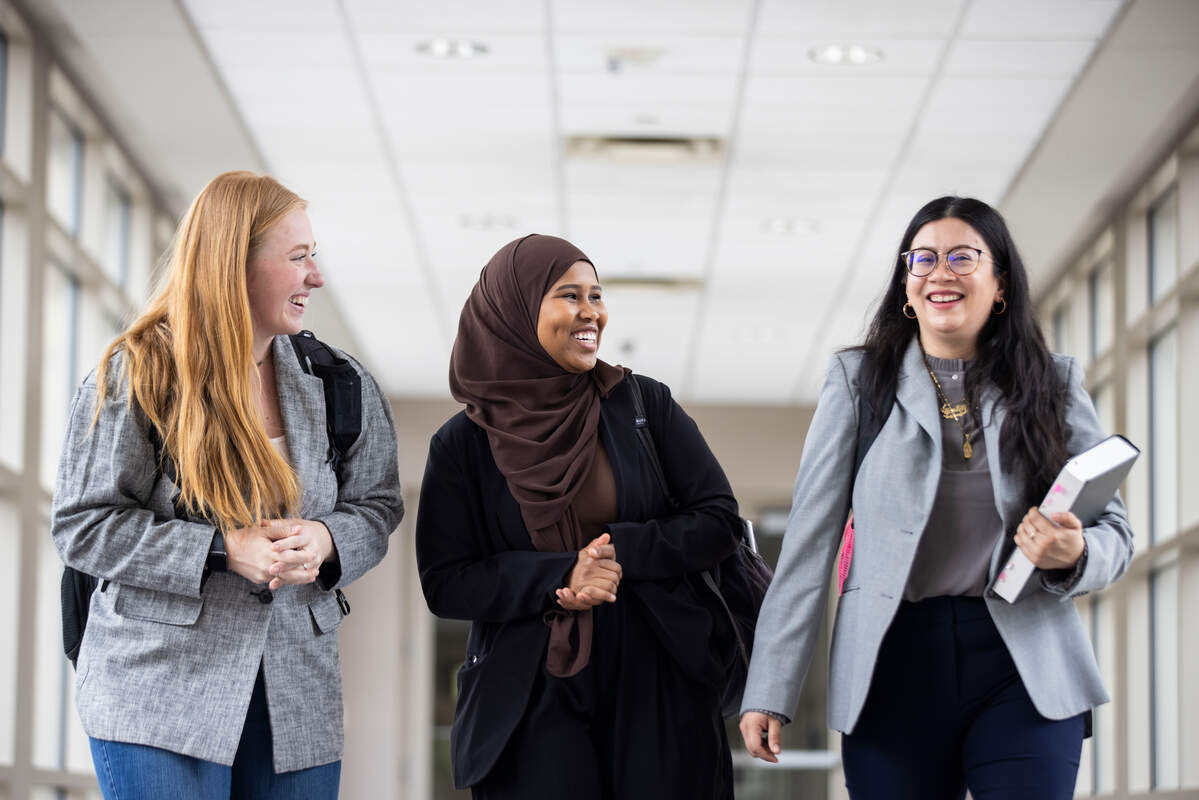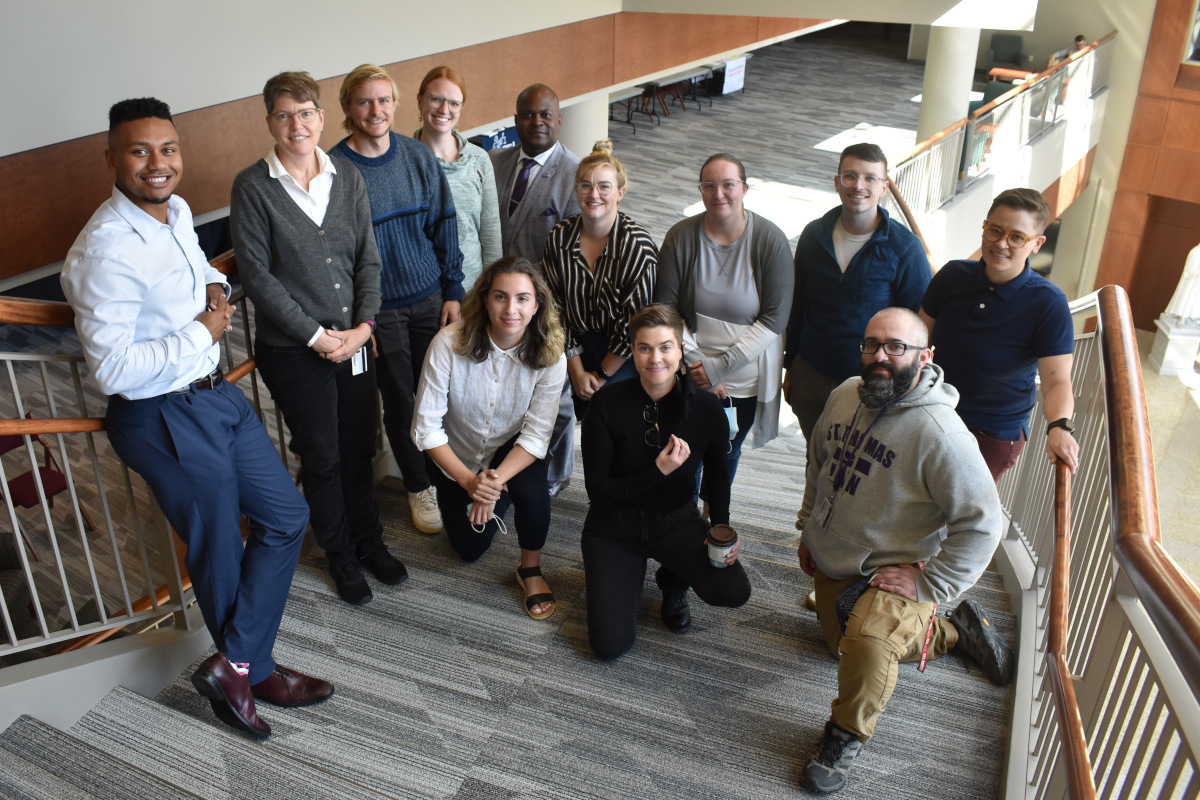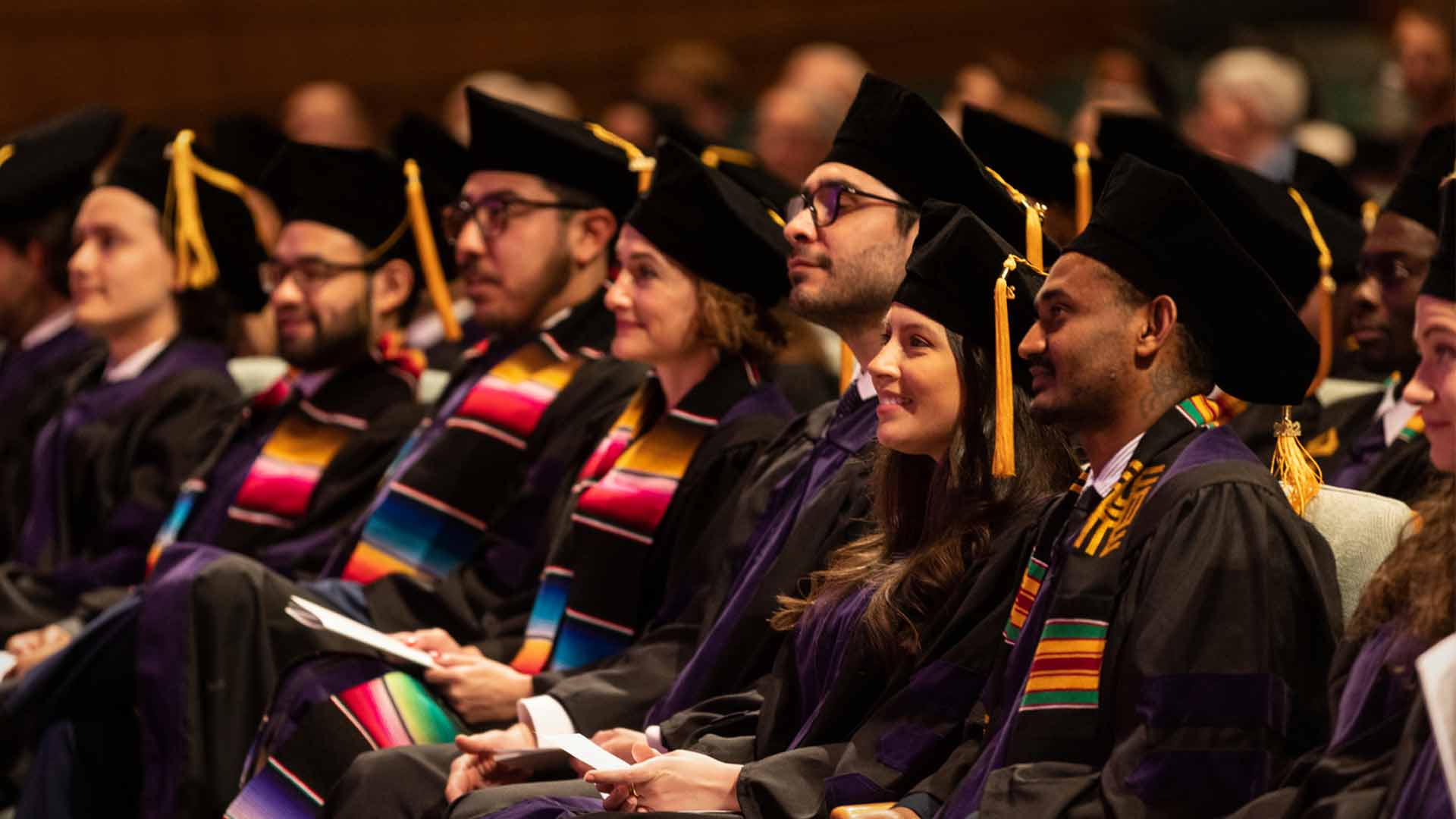Living our Mission
The University of St. Thomas School of Law has a unique mission founded on the precepts of diversity, community, service and inclusiveness. Our mission drives us to ensure that the St. Thomas Law community fully reflects the greater community and to educate lawyers who recognize the dignity of every human being and understand their professional and ethical responsibility to serve their clients and society.
We are a law school founded in the Catholic intellectual tradition, which means we welcome students of all faith traditions, nationalities, races, ages and genders, and we create opportunities for you to deepen your purpose and explore who you are.
The University of St. Thomas School of Law is committed to ensuring that its administrators, faculty, staff, and students fully reflect the great diversity of God’s creation. University of St. Thomas Law’s commitment to diversity is inseparable from its identity as a Catholic law school. Central to Catholic social teaching is the belief that every human being is made in the image of God, and that, reflecting the Trinitarian nature of God, human persons are social beings who thrive in community with others.
How we promote diversity, equity & inclusion
Social Justice Curriculum
The social justice component of the St. Thomas School of Law curriculum provides opportunities for students to become actively engaged in social justice lawyering. This component includes the Legal Services Clinic, in which students are able to provide direct legal services to the underserved. In addition, courses like Ethical Leadership in Social Justice and Poverty Law provide students with an opportunity to address the social justice challenges facing our communities and then deliberate together to implement practical solutions.
Service Learning/Community-Building
The law school also hosts service-learning projects and educational events. Our students participate in projects that create a pipeline to college and promote law/democracy initiatives.
Educational Events
We host a number of educational events in order to create opportunities for students, faculty, staff, and community members to become informed and engaged about issues related to diversity. Past guest lecturers have included: Dr. Josie Johnson (Minnesota Civil Rights Pioneer), Dr. John Jackson (The Schott Foundation), and Dr. Edgar Cahn (TimeBank USA), who have educated the St. Thomas community on current civil rights issues. These experiences provide our students with opportunities to learn and grow as servant leaders.
Practical Skills Development
The law school seeks to support the intellectual and social development of law students through its programming, training, and outreach efforts. This includes supporting learning objectives such as: providing students with opportunities to develop an understanding of people of other racial or ethnic backgrounds, and facilitating contact among students from different backgrounds. These experiences will prepare our graduates to effectively work with colleagues, clients, and community members from diverse backgrounds.
Engaged Civil Debate
The law school seeks to support the intellectual and social development of law students through its programming, training, and outreach efforts. This includes supporting learning objectives such as: providing students with opportunities to develop an understanding of people of other racial or ethnic backgrounds, and facilitating contact among students from different backgrounds. These experiences will prepare our graduates to effectively work with colleagues, clients, and community members from diverse backgrounds.
Social Justice Curriculum
The social justice component of the St. Thomas School of Law curriculum provides opportunities for students to become actively engaged in social justice lawyering. This component includes the Legal Services Clinic, in which students are able to provide direct legal services to the underserved. In addition, courses like Ethical Leadership in Social Justice and Poverty Law provide students with an opportunity to address the social justice challenges facing our communities and then deliberate together to implement practical solutions.
Service Learning/Community-Building
The law school also hosts service-learning projects and educational events. Our students participate in projects that create a pipeline to college and promote law/democracy initiatives.
Educational Events
We host a number of educational events in order to create opportunities for students, faculty, staff, and community members to become informed and engaged about issues related to diversity. Past guest lecturers have included: Dr. Josie Johnson (Minnesota Civil Rights Pioneer), Dr. John Jackson (The Schott Foundation), and Dr. Edgar Cahn (TimeBank USA), who have educated the St. Thomas community on current civil rights issues. These experiences provide our students with opportunities to learn and grow as servant leaders.
Practical Skills Development
The law school seeks to support the intellectual and social development of law students through its programming, training, and outreach efforts. This includes supporting learning objectives such as: providing students with opportunities to develop an understanding of people of other racial or ethnic backgrounds, and facilitating contact among students from different backgrounds. These experiences will prepare our graduates to effectively work with colleagues, clients, and community members from diverse backgrounds.
Engaged Civil Debate
The law school seeks to support the intellectual and social development of law students through its programming, training, and outreach efforts. This includes supporting learning objectives such as: providing students with opportunities to develop an understanding of people of other racial or ethnic backgrounds, and facilitating contact among students from different backgrounds. These experiences will prepare our graduates to effectively work with colleagues, clients, and community members from diverse backgrounds.

School of Law
Diversity, Equity and Inclusion Committee
The School of Law Diversity and Inclusion Committee is comprised of students, faculty and staff. The committee promotes diversity initiatives and partners with the university’s Office of Diversity, Equity and Inclusion and law student organizations to sponsor events throughout the semester.

Student Clubs and Organizations
An Engaged Student Body
The law school's student organizations are representative of the vast number of backgrounds, interests, experiences and beliefs within our community. St. Thomas Law’s student groups include the American Constitutional Society; Black, Latinx and Asian Pacific law student associations; Out!Law; Women’s Law Student Association; First-Generation Law Student Association; and several faith-based organizations.
Diversity at the University of St. Thomas
As a Catholic university and the largest private institution of higher learning in Minnesota, St. Thomas has both an extraordinary opportunity and a special responsibility to create and maintain a climate that affirms diversity of persons as well as diversity of views.
Office for Diversity, Equity and Inclusion
The Office for Diversity, Equity and Inclusion develops and articulates the university's goals around fostering a diverse and inclusive campus community. In doing so, the Office works collaboratively with students, faculty, staff and administrators to create a campus culture that values the unique contributions that all bring to the St. Thomas community.
Student Diversity & Inclusion Services
The Student Diversity & Inclusion Services office exists to enhance the campus climate and holds a deep commitment to developing and sustaining a diverse campus community in the broadest sense, including differences in gender, race, ethnicity, generational history, culture, socioeconomic class, religion, sexual orientation, national origin, citizenship status, political perspectives, geographic origin and physical ability, through programs and initiatives aimed at St. Thomas students. The office's work is based on four pillars: education, leadership, advocacy and community.
